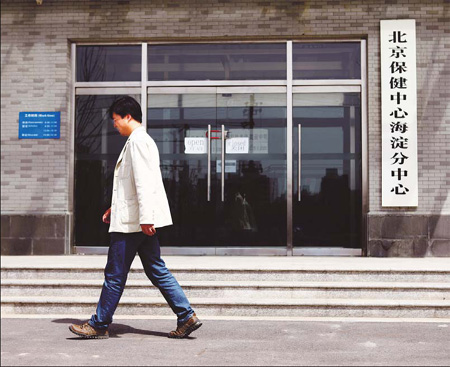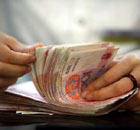Top Stories
HIV tests will continue, despite new national rules
By Yang Wanli (China Daily)
Updated: 2010-05-05 08:14
 |
Large Medium Small |
|
The Haidian Healthcare Center is charge of blood tests for foreigners in Beijing. [Zou Hong / China Daily] |
Foreigners, NGOs hope for a quick lift of the ban
Foreigners intending to study or work in Beijing will still be required to test for HIV, despite the Chinese government easing a two-decade-old travel ban on foreign HIV carriers on April 27.
At the Haidian clinic of the Beijing International Travel Healthcare Center, the only place in the city that carries out physical examinations for foreigners and issues health certificates, the tests still include checks for HIV/AIDS, STDs and hepatitis.
Song Yueqian, director of Beijing entry-exit inspection and quarantine bureau, said it hasn't received any instructions from his superiors to stop the tests.
However, foreigners and people from non-government organizations were optimistic.
"I believe the ban on foreigners with HIV/AIDS to work and study in China will be lifted in the near future," said Lu Jun, the director of Beijing Yirenping center, a non-profit organization that promotes equal rights for infectious diseases sufferers.
He said the government has found the restrictions did not substantially help in controlling AIDS.
Brock Bush, 38, an engineer from the United States who is planning to work in Beijing, said AIDS control should not simply be a ban on foreigners with HIV/AIDS.
"China has an HIV-positive population of 740,000, which some experts consider a low estimate," Bush said.
"The most dangerous element is not from immigrants or travelers, but from the disease spreading among locals."
The Haidian clinic examines more than 20,000 foreigners, of whom fewer than 100 are tested positive every year. And before a new academic year, about 400 students come in for tests every day.
Qing Hua, a 34-year-old Beijing businessman, said: "Compared with the local Chinese, some foreigners are more open-minded on sex. This increases the risk of HIV/AIDS spreading in China."
Tian Rui, a doctor from the center, said most of the HIV/AIDS carriers detected are students under 18.
"These are the most dangerous people as they tend to move in many social groups and have more chances to spread the disease," she said.
Under the new entry-exit regulation, foreigners will not have to undergo an HIV test while seeking a visa, and selective testing among foreigners entering China, and the deportation of those found to be HIV-positive, will be abolished.
A survey on the sina.com website shows many people, however, do not support the change to the HIV rules. About 75 percent of a total of 3,500 people were worried about the ban's removal.
A doctor surnamed Yang in the center said some students with HIV/AIDS paid no heed to the disease.
"If students are proved to be HIV positive, they will be repatriated, which also troubles us. But I believe this is necessary. We have the duty to protect public health," Yang said.
Lu said people should have equal freedom of movement, regardless of their HIV status.
"Most people worry about the ban being lifted as they misunderstand the disease.
"The ban is not much of a solution to the problem. The right way to control the disease is to tell people how to protect themselves from it."








